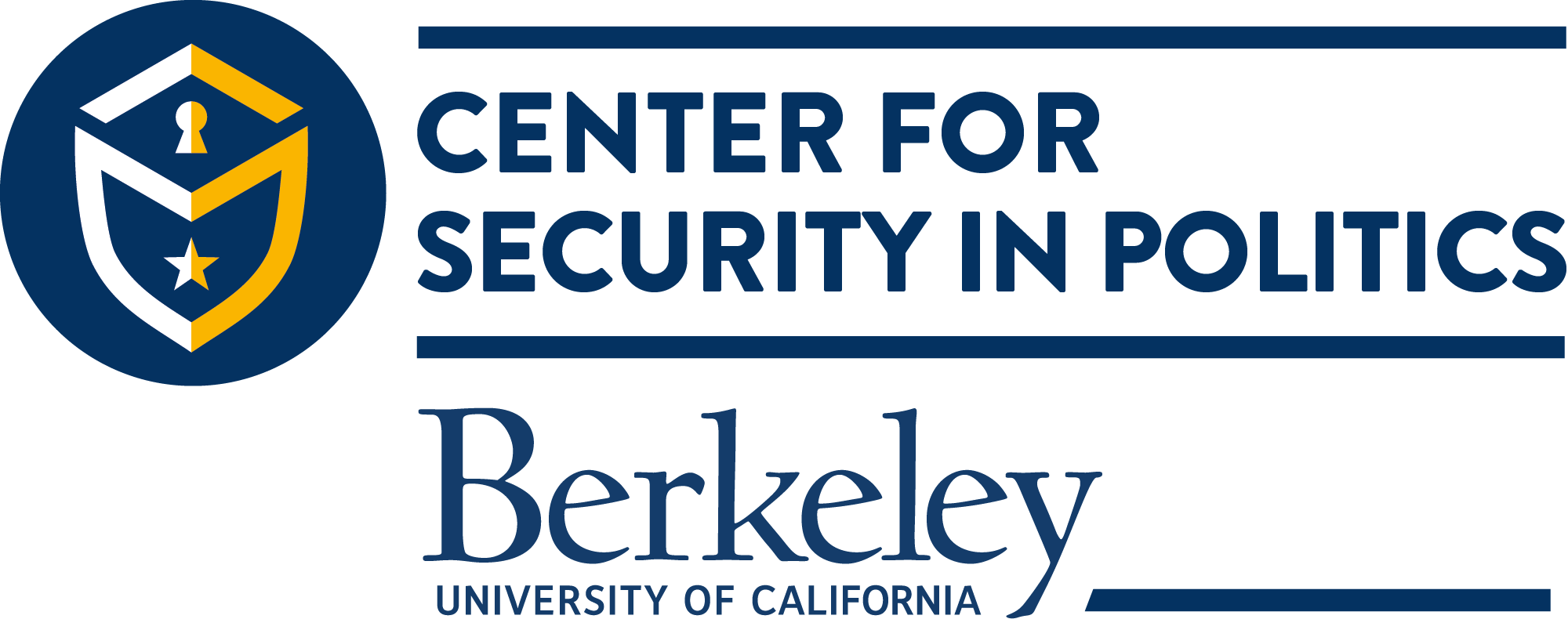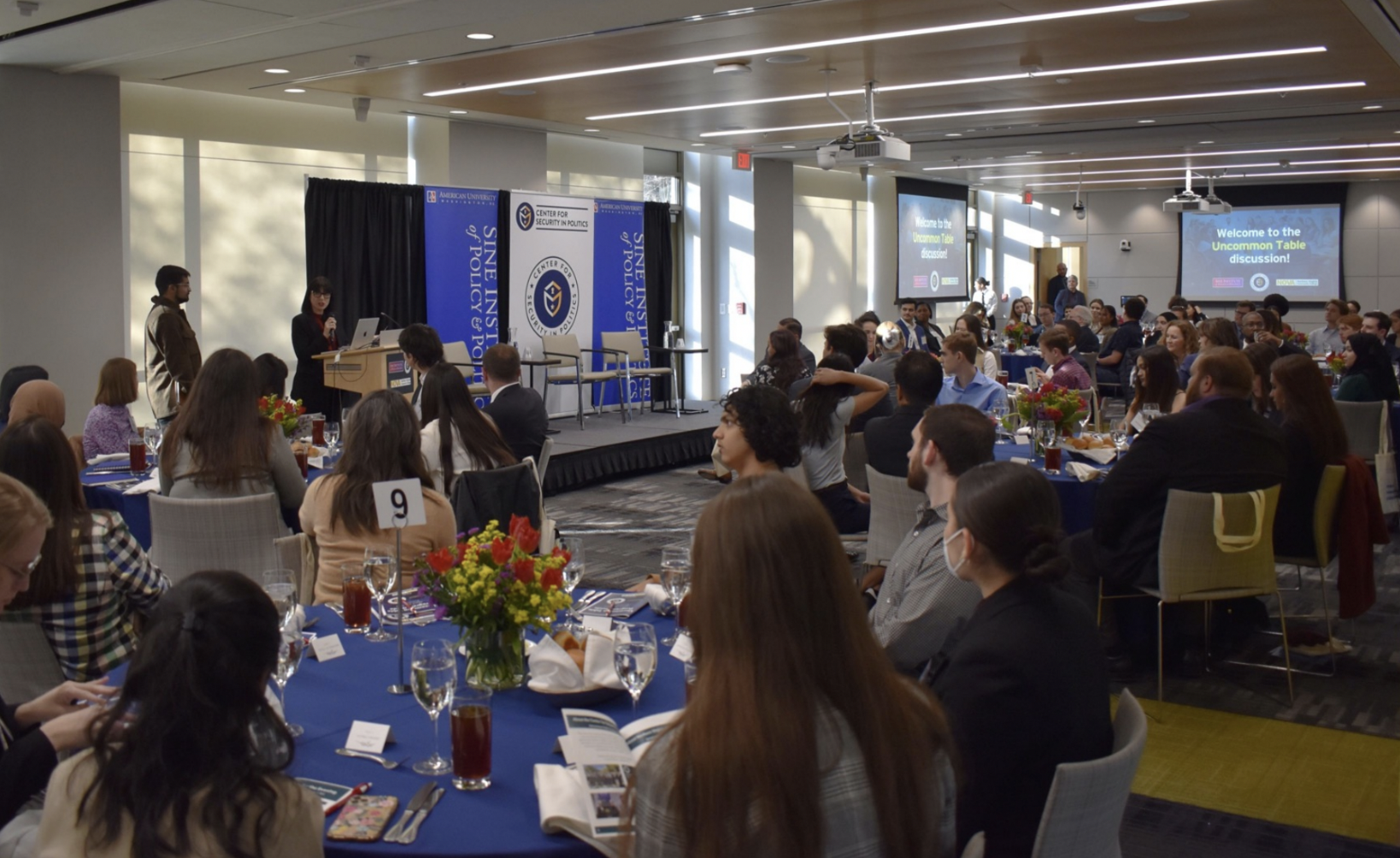By Amy K. Dacey and Janet Napolitano
Even for those who haven’t spent decades working in politics, it’s hard to avoid exposure to the political division, polarization and cultural wars that surround us in today’s America. This is not a new concern.
A great deal has been written about this division in recent years and for good reason. Skimming through Twitter, watching cable networks or glancing at any news, it’s hard not to notice just how cluttered and complicated our democracy feels at the moment. It makes us wonder just how strong America really is today and consider what, if anything, can be done to bring us together so we can remain secure and competitive on the world stage.
It was this question that inspired the Sine Institute of Policy and Politics at American University and the Center for Security in Politics (CSP) at the University of California, Berkeley to hold our inaugural “Uncommon Table” event late in March at American University in Washington D.C.
The Sine Institute and the CSP share a common goal of bringing people together to discuss, collaborate on and address today’s challenges. For our Uncommon Table model, we envisioned an evening that would hopefully answer a critical question: Can American students from different walks of life and inevitably varied life stories, perspectives and views find a common language and a way to listen to and talk to each other? Can Americans really put aside their differences over a meal and find out what they truly have in common?
What we found was a simple answer: Yes, they can. And they need to do more of it.
For the big night, the Sine Institute and CSP hosted students from Northern Virginia Community College at American University for a dinner and panel discussion featuring Sine fellow and Center for a New American Security (CNAS) CEO Richard Fontaine and Brilliant Corners Research & Strategy Founder and President Cornell Belcher.
The panel, which included one of us, discussed national security, the future of democracy and the importance of collaborative conversation, and two students from each school were seated at a table alongside a discussion facilitator. They were encouraged to get to know each other and given a variety of discussion topics — democracy, national security, polarization, Wall Street, Main Street, the concept of patriotism and more. Tables were also assigned two specific discussion topics to discuss and report the answers to the room: “What does democracy mean to you,” and, “Is it possible for two people who virulently disagree on issues to amicably communicate with each other and co-exist in a common community?”
The dinner began. Students put their phones in their pockets and did something amazing and rare today. They shared a meal while learning about each other as they discussed their answers. Where did you grow up? What do you think most inspired your outlook on America and democracy? What experiences have you had that made you the person you are today? Did your parents have strong political views and did they influence yours? Which mentors, friends, teachers, coaches and elected officials inspire you or help you on your journey?
As we walked from group to group and heard the lively back and forth between the students reflecting both agreement and respectful disagreement, it was hard not to feel a renewed sense of hope and faith in the power of open communication and connection. When the students reported the answers for their tables, this feeling of positivity was even more palpable. The answers varied and students at some tables reported more debate than others as they worked through the process. Each report to the room given by a chosen table speaker was well thought-out and clearly a collaboration of varying viewpoints from table members.
Yes, people can come together. But only if they show each other grace and allow themselves open communication. Democracy has flaws but can succeed through great compromise. It’s crucial to not just hear someone’s views but actually listen to them. One student reported his table’s discussion of a quote by President Abraham Lincoln, “a house divided amongst itself cannot stand.”
As the late-day sun streamed in across the room, there was a spirit of optimism and hope that made us realize that what our nation needs is more of what we were seeing and hearing — more Uncommon Tables and more voices being brought together. Our democracy needs us to take the time to put our relentless partisanship aside and do our best to leave our egos and insecurities out of the discussion. When more people break bread together and go into a conversation with an open mind and a commitment to learning about others, our country will grow stronger and our future will look brighter.
March’s event was our inaugural Uncommon Table, and it won’t be the last. Our hope is that this concept will evolve and present itself in many different forms. We believe our inaugural Uncommon Table event showed the potentially positive impact of the model on a university setting. To start, we hope it can spread to institutions of higher learning nationwide. In the meantime, it’s critical for our security and future that we try to find Uncommon Tables everywhere. Truly listening will bring us closer to where we need to be. We owe it to ourselves, to each other, and to our democracy’s future to find Uncommon Tables, especially when and where it’s hard to believe they can exist.
E pluribus unum. Out of many, one.
Amy K. Dacey is the executive director of the Sine Institute of Policy and Politics at American University and former head of the Democratic National Committee and Emily’s List. Janet Napolitano is a professor of Public Policy and directs the Center for Security in Politics at UC Berkeley. She is a former U.S. Secretary of Homeland Security and former governor of Arizona.
This op-ed was published in The Hill on May 1, 2023.

